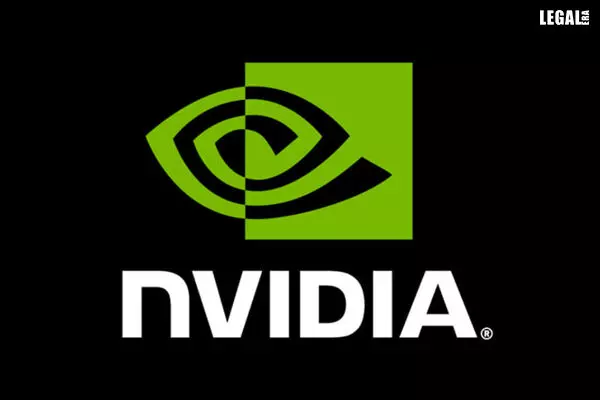- Home
- News
- Articles+
- Aerospace
- Artificial Intelligence
- Agriculture
- Alternate Dispute Resolution
- Arbitration & Mediation
- Banking and Finance
- Bankruptcy
- Book Review
- Bribery & Corruption
- Commercial Litigation
- Competition Law
- Conference Reports
- Consumer Products
- Contract
- Corporate Governance
- Corporate Law
- Covid-19
- Cryptocurrency
- Cybersecurity
- Data Protection
- Defence
- Digital Economy
- E-commerce
- Employment Law
- Energy and Natural Resources
- Entertainment and Sports Law
- Environmental Law
- Environmental, Social, and Governance
- Foreign Direct Investment
- Food and Beverage
- Gaming
- Health Care
- IBC Diaries
- In Focus
- Inclusion & Diversity
- Insurance Law
- Intellectual Property
- International Law
- IP & Tech Era
- Know the Law
- Labour Laws
- Law & Policy and Regulation
- Litigation
- Litigation Funding
- Manufacturing
- Mergers & Acquisitions
- NFTs
- Privacy
- Private Equity
- Project Finance
- Real Estate
- Risk and Compliance
- Student Corner
- Take On Board
- Tax
- Technology Media and Telecom
- Tributes
- Viewpoint
- Zoom In
- Law Firms
- In-House
- Rankings
- E-Magazine
- Legal Era TV
- Events
- Middle East
- Africa
- News
- Articles
- Aerospace
- Artificial Intelligence
- Agriculture
- Alternate Dispute Resolution
- Arbitration & Mediation
- Banking and Finance
- Bankruptcy
- Book Review
- Bribery & Corruption
- Commercial Litigation
- Competition Law
- Conference Reports
- Consumer Products
- Contract
- Corporate Governance
- Corporate Law
- Covid-19
- Cryptocurrency
- Cybersecurity
- Data Protection
- Defence
- Digital Economy
- E-commerce
- Employment Law
- Energy and Natural Resources
- Entertainment and Sports Law
- Environmental Law
- Environmental, Social, and Governance
- Foreign Direct Investment
- Food and Beverage
- Gaming
- Health Care
- IBC Diaries
- In Focus
- Inclusion & Diversity
- Insurance Law
- Intellectual Property
- International Law
- IP & Tech Era
- Know the Law
- Labour Laws
- Law & Policy and Regulation
- Litigation
- Litigation Funding
- Manufacturing
- Mergers & Acquisitions
- NFTs
- Privacy
- Private Equity
- Project Finance
- Real Estate
- Risk and Compliance
- Student Corner
- Take On Board
- Tax
- Technology Media and Telecom
- Tributes
- Viewpoint
- Zoom In
- Law Firms
- In-House
- Rankings
- E-Magazine
- Legal Era TV
- Events
- Middle East
- Africa
US Supreme Court To Review Appeals Court Ruling On Nvidia's Securities Fraud Case

US Supreme Court To Review Appeals Court Ruling On Nvidia's Securities Fraud Case
The matter will be heard on 13 November
The Supreme Court of the United States is set to review a ruling of the US Court of Appeals for the Ninth Circuit that found Nvidia Corporation executives had misled investors on the impact of cryptocurrency mining on the company's revenue.
The case rests on whether shareholder lawsuits alleging securities fraud need to disclose the internal contents of company documents. Also, if expert opinions could support claims of false statements by the Chief Executive Officer and the Chief Finance Officer of Nvidia.
While the appellate court allowed the submissions against the CEO, it denied the same against the CFO.
The case falls under the Private Securities Litigation Reform Act (PSLRA) which imposes pleading requirements on plaintiffs who file securities fraud class actions.
To state a claim, plaintiffs must provide all facts supporting their allegations of falsity and prove a strong inference of the required mental state of the person.
(Such standards are usually set by matching statements from public documents against the corresponding internal documents).
The putative class action lawsuit alleged that the executives and the senior vice president of Nvidia made false or misleading statements, minimizing the degree to which the corporation's revenues were impacted by cryptocurrency-related sales.
Security fraud comes under Section 10(b) of the Securities Exchange Act of 1934, Rule 10b-5 and control-person liability.
The appellate court noted that a substantial part of Nvidia’s revenues during the Class Period came from the sales of GeForce GPUs for crypto mining.
Most of it relied on the expert analyses of the Royal Bank of Canada and Prysm Group statements of the former employees.
The company’s earnings collapsed when cryptocurrency prices buckled, and crypto miners quit purchasing GeForce GPUs.



